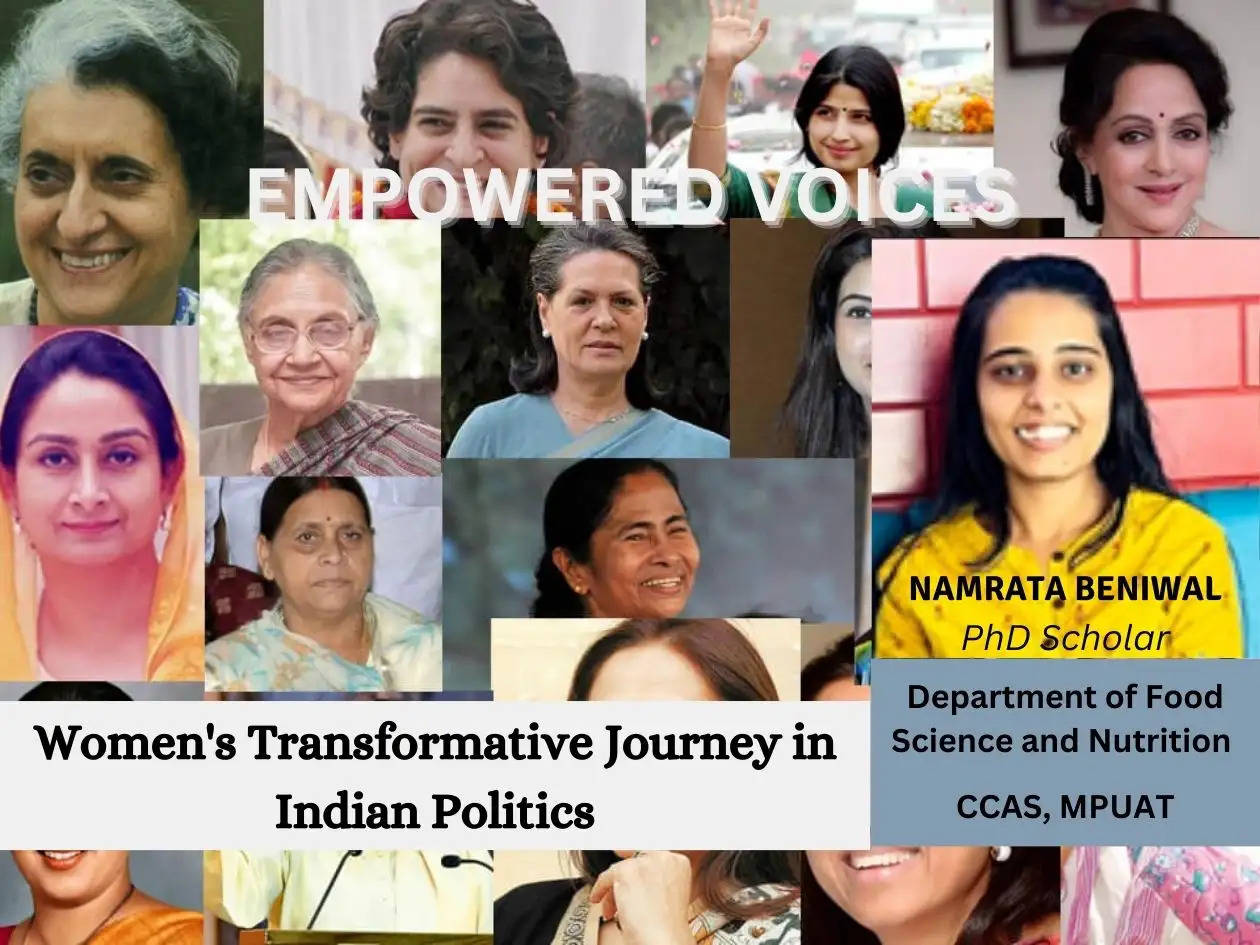EMPOWERED VOICES: Women's Transformative Journey in Indian Politics
The role of women in Indian politics has undergone a remarkable transformation from historical times to the present day. In ancient India, glimpses of women participating in political affairs could be found, often through indirect influence or as advisors. Here's a brief overview of the evolution:
Historical Periods:
1. Ancient Period:
Some women in ancient India held political power. For example, queens like Rani Padmini and Rani Durgavati were known for their leadership.
2. Medieval Period:
Women's participation in political affairs was limited, and their roles were often confined to the royal court.
3. Colonial Period:
With the advent of British rule, the opportunities for political participation were restricted, and societal norms limited women's involvement.
Post-Independence Era:
1. Early Post-Independence Years:
- After gaining independence in 1947, women played active roles in the freedom movement.
- The Indian Constitution, adopted in 1950, granted women the right to vote and participate in the political process.
2. Pioneering Women Leaders
- Early women leaders like Indira Gandhi, who served as the Prime Minister, paved the way for women in top political positions.
- The 73rd and 74th Amendments (1992) reserved seats for women in local governance bodies (Panchayats and Municipalities).
3. Increasing Political Participation:
- Over the years, there has been a gradual increase in the number of women participating in state legislatures and the national parliament.
- Women have held important portfolios in various governments, contributing to policy-making.
4. Women's Reservation Bill:
- The Women's Reservation Bill, which proposes to reserve 33% of seats for women in the Lok Sabha and state legislatures, is yet to be passed but remains a topic of discussion.
5. Increasing Visibility:
- Women leaders, such as Sonia Gandhi, Mamata Banerjee, and Nirmala Sitharaman, have played pivotal roles in shaping the political landscape.
6. Empowerment at Local Levels:
- Reservation of seats for women at the grassroots level has empowered women to participate actively in local governance.
7. Challenges and Progress:
- Challenges persist, including gender bias, stereotyping, and the under-representation of women in certain political spheres. However, there is a growing recognition of the need for greater gender diversity in politics.
8. #MeToo Movement Impact:
- The #MeToo movement has shed light on issues of harassment in various sectors, including politics, prompting discussions on the need for safer and more inclusive political environments.
While there has been progress, achieving gender parity in Indian politics remains an ongoing effort. Advocacy for equal opportunities, changes in societal attitudes, and continued efforts to overcome barriers will play crucial roles in shaping the future of women in Indian politics.
To join us on Facebook Click Here and Subscribe to UdaipurTimes Broadcast channels on GoogleNews | Telegram | Signal



